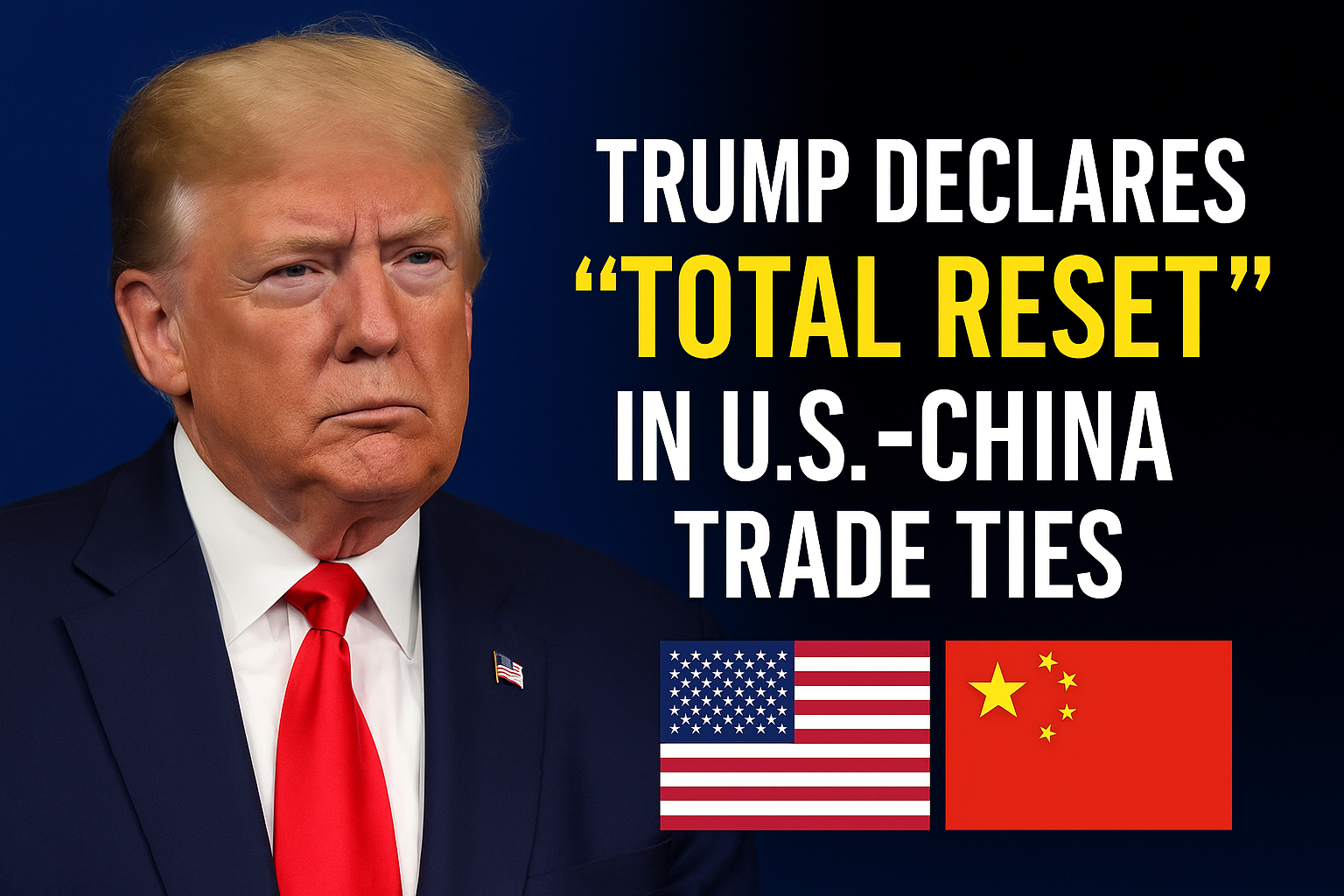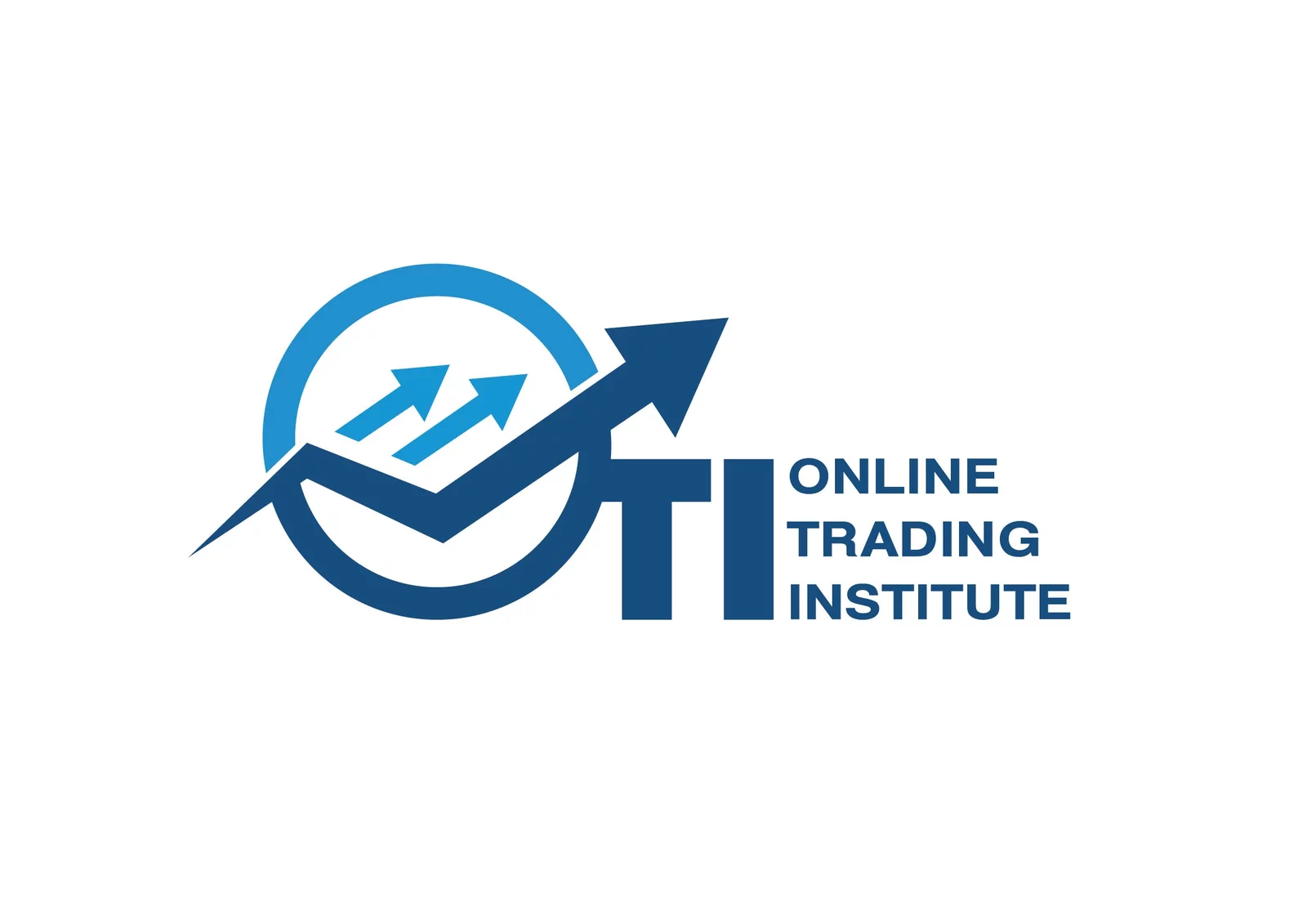
In a dramatic shift following months of intense tariff battles, former US President Donald Trump has declared a “total reset” in US-China trade relations, signalling a potential turning point for global commerce. This development, shared on Trump’s Truth Social platform, comes after a high-level diplomatic meeting held at Villa Saladin in Switzerland—a move that could ease trade tensions which severely impacted bilateral business worth over $660 billion last year.
For Indian investors and traders, this news carries serious weight. A reset in US-China ties could alter global supply chains, impact metal and tech stocks, and potentially bring volatility or opportunity in Nifty and Sensex movements. The US-China trade reset is not just a diplomatic event—it’s a market-moving one.
Productive Talks at a Historic Venue Signal Fresh Momentum
The recent dialogue took place at the 18th-century Villa Saladin, overlooking Lake Geneva, lending an air of old-world diplomacy to a very modern problem. Trump confirmed that both nations discussed “many things” and reached agreements in a “constructive” manner. The US delegation featured Treasury Secretary Scott Bessent and Trade Representative Jamieson Greer, while China’s team was led by Vice Premier He Lifeng.
Senior trade negotiators from the U.S. and China concluded over ten hours of pivotal tariff talks on Saturday, viewed as vital for global market stability, with discussions scheduled to continue on Sunday, according to an official.
While exact policy changes are pending, the fact that both countries agreed to continue talks sets a positive tone. Such headlines usually boost market sentiment, especially for sectors reliant on global exports.
Tariffs War Nears Truce: What Traders Must Know
Last month, Trump had raised tariffs on Chinese imports to a whopping 145%, prompting Beijing to respond with a 125% counter-tariff. This led to what many analysts called a near trade boycott between the world’s two largest economies.
However, Trump hinted recently that the US may ease this stance, suggesting an 80% tariff instead—though he left the final say to Secretary Scott Bessent. This marks a clear shift toward de-escalation.
For Indian traders, such developments could create short-term ripples across commodity markets and long-term adjustments in supply chain-linked stocks like Tata Steel, Infosys, and Bajaj Auto.
What This Means for Indian Markets and Global Investors?
A thaw in US-China trade tensions could inject stability into global markets, benefiting export-heavy sectors in India. The timing is crucial, especially with Indian elections and global rate hikes adding layers of uncertainty. Smart traders should watch for policy updates, tariff rollbacks, and capital inflows into emerging markets.
China opening its doors to American businesses could also influence currency flows and global fund allocations. A more predictable trade environment often results in higher foreign investments in economies like India.
Disclaimer: The views and investment insights provided here are based on publicly available information and do not constitute financial advice. Readers are advised to conduct their own research or consult certified financial experts before making investment decisions.
